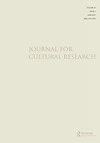走向学术责任的生态伦理:通过希腊环境主义中的关系性来揭穿权力结构
IF 0.6
Q1 CULTURAL STUDIES
引用次数: 6
摘要
学者是否有学术责任揭穿阴谋论,取决于这些阴谋论所引发的社会过程。基于对希腊环保活动家的民族志研究,我认为他们对阴谋论的参与构成了一种概念性和关系性的揭穿。具体而言,文章追溯了希腊环保主义者参与阴谋论的四个品质:结构与代理的概念对立、通过个人发展实现代理、从地缘政治权力到环境问题的意义转变,最后是通过相应的生态伦理来解决现有的权力结构。这种伦理的核心是责任,因此为本特刊提出的问题提供了一个宝贵的路标。我认为学术责任首先在于追求关系。随着科学越来越多地被用来服务于政治经济知识权威和公民社会真理轨迹,基于关系性的生态伦理学更新了经验主义的现实主义,从而揭穿了具体化的权力结构。本文章由计算机程序翻译,如有差异,请以英文原文为准。
Towards an ecological ethics of academic responsibility: debunking power structures through relationality in Greek environmentalism
ABSTRACT Whether scholars have the academic responsibility to debunk conspiracy theories depends on the social processes these theories set in motion. Based on ethnographic research with environmentalist activists in Greece, I argue that their engagement with conspiracy theories constitutes a kind of debunking that is both conceptual and relational. Specifically, the article traces four qualities of engagement with conspiracy theories in the Greek environmentalist scene: the conceptual opposition of structure with agency, the implementation of agency through personal development, the shift of significance from geopolitical power to environmental concerns, and finally the tackling of existing power structures through consequential ecological ethics. The core of this ethics is responsibility, and as such provides a valuable sign-post for the question this Special Issue poses. I argue that academic responsibility lies first and foremost in the pursuit of relationality. As science is increasingly used to serve political-economic knowledge authority and civil society truth trajectories, an ecological ethics based on relationality renews empiricist realism and thus debunks reifying power structures.
求助全文
通过发布文献求助,成功后即可免费获取论文全文。
去求助
来源期刊

Journal for Cultural Research
CULTURAL STUDIES-
CiteScore
1.40
自引率
0.00%
发文量
23
期刊介绍:
JouJournal for Cultural Research is an international journal, based in Lancaster University"s Institute for Cultural Research. It is interested in essays concerned with the conjuncture between culture and the many domains and practices in relation to which it is usually defined, including, for example, media, politics, technology, economics, society, art and the sacred. Culture is no longer, if it ever was, singular. It denotes a shifting multiplicity of signifying practices and value systems that provide a potentially infinite resource of academic critique, investigation and ethnographic or market research into cultural difference, cultural autonomy, cultural emancipation and the cultural aspects of power.
 求助内容:
求助内容: 应助结果提醒方式:
应助结果提醒方式:


